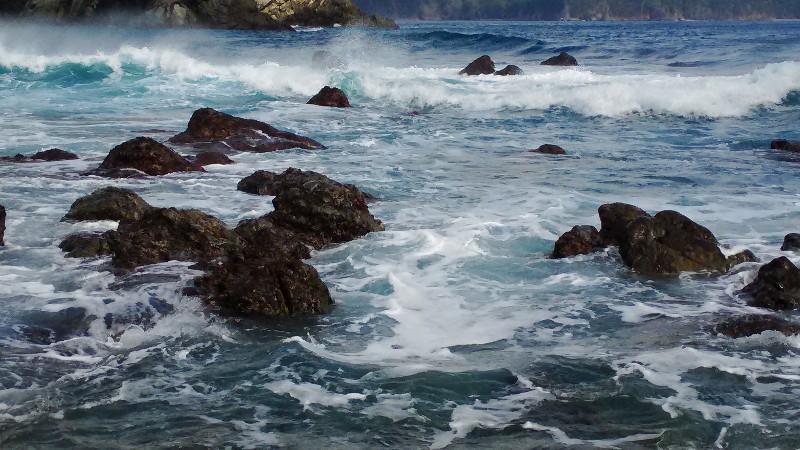昨日は上橋柏市会議員と一緒に靖国に行き、初めて昇殿参拝しました。荘厳な中にも心が洗われるような静謐な時の流れを感じることができました。また梨本宮隆夫殿下と会い挨拶させて戴きました。3/8の上橋議員の新春パーテイで講演して戴くためです。
さて、本日は岡倉天心の『日本の覚醒』第二弾です。天心は書物だけで漢民族を判断していたのではと思えます。時代の制約です。それでも当時の西洋の阿漕さには比べようもないですが。また当時中国は満州族に統治されていました。アジアの民が団結して欧米列強に対抗するのは無理でした。天心の「アジアは一つ」式の考えが昭和の軍人に伝承されたとしたら、天心は大きな間違いを犯したことになります。中国人の本質を理解していなかったということです。
内容
In Japan the race of those fiery patriots who fifty years ago shouted, “Away with the Western barbarians!” with all the lusty enthusiasm of the Chinese Boxers, is entirely gone. The tremendous change which has since come over our political life, and the material advantages we have gained by foreign contact, have so completely revolutionized national sentiment in regard to the West that it has become almost impossible for us to conceive what it was that so aroused the antagonism of our grandfathers. On the contrary, we have become so eager to identify ourselves with European civilization instead of Asiatic that our continental neighbors regard us as renegades–nay, even as an embodiment of the White Disaster itself. But our mental standpoint of a few generations back was that of the conservative Chinese patriot of to-day, and we saw in Western advance but the probable encompassing of our ruin. To the down-trodden Oriental the glory of Europe is but the humiliation of Asia.
If we place ourselves in the position of a Chinese patriot shall be able to understand how the march of events appeared to our grandfathers. Their fears were not altogether without reason, for to the wounded of Orientals history will tell of the gradual advance of the White Disaster which was descending on Asia. The Italian Renaissance marks the time when, freed from its chains, the roving spirit of Western enterprise first began to seize upon any corner of the globe where was aught to be gained. When Marco Polo returned from the Chinese court, fee bore tidings of the untold treasures of the extreme Orient. America was merely an accidental discovery on the part of Spain in her attempt to reach the coveted wealth of India. We can recall those days of Portuguese cruelty and Dutch treachery, when the cow’s hide gained a colony and the concession for a factory resulted in the establishment of an empire.
The beginning of the seventeenth century shows the rise of the East India companies of the French, Dutch, Danish, and English, the gratification of whose political ambitions, however, remained as yet unsatisfied owing to the struggles of mutual rivalry, the solidity of the Mussulman power of Delhi, and their awe of that great Turkish empire which still bravely bore the brunt of Western advance and often hurled it back to the walls of Vienna. But the brightness of the Crescent was fast waning before the combined persistence of the West, and soon the disastrous treaty of Kutchuk-Kai- narji inaugurated the imposition of Russian interference in the affairs of the Porte. In 1803 the last of the Grand Moguls became a British pensioner. In 1839, Abdul Medjid ascended the throne of Osmanli under the “protection” of European powers.
With the increase in credit and capital during the latter half of the eighteenth century, the inventive energy of European industrialism is set in motion. Coal takes the place of wood in smelting, and the flying shuttle, the spinning-jenny, the mule, the power-loom, and the steam-engine all spring up in formidable array. Commercialism makes the very life of the finding markets for her goods. Her role is now to sell, and that of the East to buy. War is her factories, and the protests of her more humane statesman are drowned in the noise of thundering mills. What chance has individualized Eastern trade against the sweeping batteries of organized commerce? Cheapness and competition, like the mitrailleuse, under whose cover they advance, now sweep away the crafts. The economic life of the Orient, founded on land and labor and deprived of a protective tariff through high-handed diplomatic action, succumbs to the army of the machine and capital.
What has become of India? It is to-day a country where die names of Asoka and Vikramaditya are even forgotten. It is a country of rajas whose breasts are starry with dishonor, and of national congresses that dare not protest. Burma was in existence but yesterday: in the rubies of Thebaw cries the innocent blood of Mandalay. The Kohinoor is even as a teardrop of Golconda. What need to mention the painful comedies enacted in Persia and Siam or to call attention to the “protectorate” established by France over Tonkin? Protectorate! Against whom?
In 1842 a Christian nation forces opium on China at the mouth of the cannon and extorts Hongkong. In 1860, on a slight pretext, the joint armies of France and England invade Pekin and sack the Summer Palace, whose treasures are now the pride of European museums, while the Russians always maintain a steady encroachment upon the hereditary domains of the Celestial Empire along the borders of the Amur and Ili. The kindly intervention of the Triple Coalition after the Japanese war was but a farce,for thereby Russia gained Port Arthur, Germany Kiauchau, and France a tighter grasp on Yunnan. It is true that the defilement of their sacred shrines goaded the Boxers to a passionate outburst of fury; but what could their old-fashioned arms avail against the combined armies of the allied powers? Their ill-judged efforts only resulted in the heaping of indignities upon China and the payment by her of exorbitant indemnities. In spite of repeated promises of evacuation, Russia has endeavored to establish herself permanently in Manchuria, and the persecuted inhabitants of that province behold the graveyards of their beloved forefathers turned into railway stations,while Cossack horses find stabling in the sacred Temple of Heaven. If Asia was old-fashioned, was Europe just? If China tried to lift her head, if the worm turned in its agony, did not Europe at once raise the cry of the Yellow Peril? Verily, the glory of the West is the humiliation of Asia.
日本では、熱烈な愛国者たちが中国の義和団のように熱狂的に「攘夷」を叫んだのは、五十年前のことであったが、今はそのかげさえない。以来わが国の政治生活におこった大変革 と、外国との接触によってえた物質的利益のために、西洋にたいするわが国民感情はまったく一変し、祖父たちが何であのように西洋人に敵意をいだいたのか、理解にくるしむほどになってしまった。それどころか、アジア文明のかわりにヨーロッバ文明と提携しようとするわれわれの熱心のあまり、大陸の隣人たちは、われわれを裏切者、いや、時には白禍そのものとさえ見るにいたった。
しかしながら、数代前の日本人の見地は、今日の中国の保守的愛国者のそれとおなじであり、西洋の進出のうちに日本の破滅の危険しか見ていなかった。ふみにじられた東洋にとって、ヨーロッパの栄光はアジアの屈辱にほかならない。
われわれが今日の中国の愛国者の立場に身をおいてみるならばわれわれの祖父たちにその時代の動きがどのように映じたかを、理解できるであろう。祖父たちの憂慮は、けっして理由のないものではなかった。なぜなら、東洋人の傷ついた想像にたいして歴史は、せまりくる白禍の東漸を告げていたからである。
イタリアのルネサンス以来、西洋の進取の気性は、その束縛から解放され利益をもとめて、地球上ののこされた一片の土地でもうばいとろうとしはじめた。中国の宮廷からもどったマルコ・ポーロは、極東の無限の富について語った。アメリカは、インドの富に到達しようとしたスペインが、たまたま発見したものであった。歴史は、牛の皮で植民地を獲得し、海外の一商館から帝国をきずきあげた、ポルトガルの残忍、オランダの狡滑を物語っている。
十七世紀のはじめには、フランス、オランダ、デンマーク、イギリスの東インド会社が出現する。 しかし、彼らの政治的野心は、相互の勢力争いと、デリーを都とする回教国の強固さ、そして大トルコ帝国の威力によって、一挙には達成されなかった。偉大なトルコは、西洋の進出を勇敢にくいとめ、しばしばこれをウイ-ンの城壁までおしかえした。しかしながら、新月旗の光輝は、西洋の結束した力のまえに急速にその光をうしなっていった。やがてロシアは、屈辱的なクチユク・カイナルジ条約をおしつけ、トルコにたいする内政干渉を開始した。一八〇三年には、ムガール帝国の最後の皇帝がイギリスの年金をうける身になった。 一八三九年には、アブドゥル・メジッドが、ヨーロッパ列強の「保護」のもとに、オスマン=トルコの王位にのぼった。
十八世紀後半になると、信用と資本の増加とともに、ヨーロッパ産業主義の発明エネルギ—が活動をはじめた。製錬業では、石炭が木炭にとってかわり、飛梭、紡機、ミユ一ル精紡機、動力織機、蒸気機関などが、つぎつぎにすさまじい勢いでとび出してきた。商業主義は、西洋の生活そのものを、商品販売市場の開発に依存させる。今や、西洋の役割は売ることであり、東洋の役割は買うことである。戦いは工場から宣言され、多少とも人道的な政治豕たちの抗議は、とどろきわたる工場の騒音のなかにかき消されてしまう。組織的な商業のはげしい攻勢のまえに、東洋の小さな手工業はひとたまりもない。安値と競争という機関銃の援護のもとに、彼らは同業組合を一掃する。土地と労力に基礎をおき、高圧的な外交によって保護関税をうばわれている東洋の経済生活は、機械と資本の軍隊のまえに屈服した。
インドはどうなったか?今やインドは、アソカ王やヴィクラマーディティヤ王の名前さえ忘れてしまった国である。胸に不名誉の勲章をかざった貴族の国、抗議する勇気もない国民会議派の国である。ビルマはすでに亡びた。テイボーの紅玉には、マンダレーの罪なき民の血の叫びがこもっている。コイヌールの金剛石はまさに、ゴルコンダの涙の一滴である。 ペルシアやシャムで演ぜられた、痛ましい喜劇や、フランスがトンキンを「保護国」とした一幕はあえていう必要もあるまい。「保護国」という。だがいったい、だれから保護するというのか?
一八四ニ年には、一キリスト教国が、中国に大砲をむけて阿片をおしつけ、香港を強奪した。一八六○年には、ささいな口実を設けて、英仏連合軍が北京に侵入し、「夏の宮殿」〔頤和園。西太后の避暑にもちいられた〕を略奪し、宮殿の財宝は今ではヨーロッパの博物館の誇りになっている。いっぽう、ロシアは、アムール、イリの辺境一帯の清国の領土をたえず侵食していた。日清戰争後の好意的な「三国干渉」は、まったくの茶番にすぎず、これによって、ロシアは旅順港、ドイツは膠州湾を得、フランスは雲南を確保したのであった。神聖な祖国が汚されたことをいきどおって、義和団の運動が勃発したが、彼らの旧式な武器では、列強の連合軍のまえにはひとたまりもなかった。思慮に欠けた彼らの行動は、中国にたいする侮蔑を倍加させ、法外な賠償金を支払わされる結果におわった。ロシアは、再三撤兵を約束しながら、永久に満州に腰をすえようとかかり、虐げられた満州の民は、先祖代々の墳墓が鉄道の停車場にかわり、神聖な天壇〔天子が天帝を祀った祭壇。瀋陽に遺跡がある〕 がコサックの馬小屋になるのを眺めていた。
アジアが旧式だったとしても、ヨーロッパは公明正大だったろうか?中国がその頭をもたげようとしたとき、ふみつけられた虫が苦しさのあまりのたうちまわったとき、ヨーロッパはただちに黄禍の叫びをあげたではないか。まことに、東洋の栄光はアジアの屈辱にほかならなかった。
